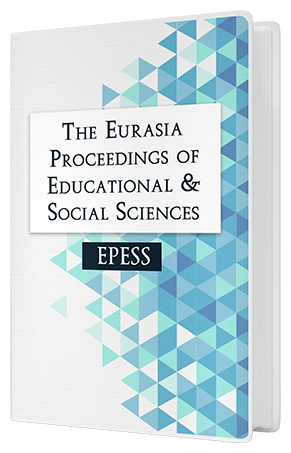Can Environmental Education Supported by Augmented Reality (AR) Applications Improve the Environmental Awareness of Primary School Students?
DOI:
https://doi.org/10.55549/epess.1381983Keywords:
Augmented reality, Environmental awareness, Environmental knowledge, Environmental attitude, Environmental behaviorAbstract
It is thought that it would be appropriate to use augmented reality technology, which provides many educational advantages for effective environmental education. This research aims to examine the effect of environmental education using augmented reality (AR) applications on the knowledge, attitudes, and behaviors of primary school third-grade students towards the environment and to find out the children's views on AR. The case study design, one of the qualitative research methods, was used in the research. The research was carried out with seventeen primary school third-grade students from a public school in the 2021-2022 academic year. Environmental education was given to the selected class with augmented reality applications for six weeks. The data were collected with the ‘Semi-Structured Interview Form’ prepared by the researcher. Content analysis technique was used in the analysis of the data. According to the findings obtained from the interviews; it has been concluded that environmental education using AR applications is effective in the knowledge, attitude, behavior, and environmental awareness of third-grade students towards the environment. In addition to these, in the interviews; it has been determined that students have positive emotions towards AR reality applications; they want to use the applications in other lessons; AR applications facilitate their learning and positively affect their approaches towards living / non-living beings, the environment and environmental problems.Downloads
Published
Issue
Section
License
Copyright (c) 2023 The Eurasia Proceedings of Educational and Social Sciences

This work is licensed under a Creative Commons Attribution-NonCommercial-ShareAlike 4.0 International License.
The articles may be used for research, teaching, and private study purposes. Any substantial or systematic reproduction, redistribution, reselling, loan, sub-licensing, systematic supply, or distribution in any form to anyone is expressly forbidden. Authors alone are responsible for the contents of their articles. The journal owns the copyright of the articles. The publisher shall not be liable for any loss, actions, claims, proceedings, demand, or costs or damages whatsoever or howsoever caused arising directly or indirectly in connection with or arising out of the use of the research material. All authors are requested to disclose any actual or potential conflict of interest including any financial, personal or other relationships with other people or organizations regarding the submitted work.




